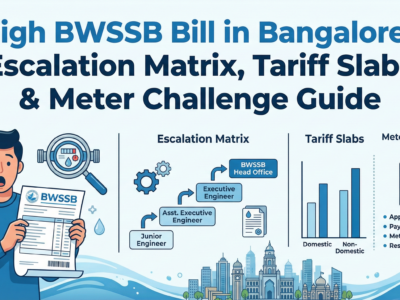Introduction
Child custody and support laws form a crucial aspect of family law in India, profoundly impacting the lives of children whose parents undergo separation or divorce. This essay delves into the historical evolution and current legal framework of child custody and support laws in India, shedding light on the challenges faced by the legal system in safeguarding the welfare of children in such circumstances.
Historical Evolution
- Traditional Perspective: Historically, Indian society adhered to patriarchal values, designating the father as the natural guardian of the child. This perspective found expression in legal frameworks, often resulting in custody decisions heavily favouring fathers, with mothers encountering obstacles in securing custody, particularly in cases of divorce or separation.
- Legal Reforms: Legal reforms gradually challenged these traditional norms, recognizing the evolving role of mothers and the imperative of prioritizing the child’s welfare. Acts such as the Hindu Minority and Guardianship Act of 1956 granted mothers equal rights as natural guardians, symbolizing a departure from a paternalistic approach to child custody.
Current Legal Framework
- Personal Laws: Child custody and support laws in India are predominantly governed by personal laws, each specific to religious affiliations. Hindus, Muslims, Christians, Parsis, and others have distinct legal frameworks dictating matters of custody and support. For example, the Hindu Adoption and Maintenance Act of 1956 addresses custody and maintenance for Hindu children.
- Best Interests of the Child: A pivotal shift occurred with the incorporation of the ‘best interests of the child’ principle in custody decisions. Courts now prioritize the child’s welfare over parental rights, considering factors such as the child’s age, preference, and overall emotional and physical well-being.
- Legal Procedures: Child custody and support cases involve court interventions, where parents file petitions, and the court weighs various aspects before reaching a decision. Additionally, mediation and counselling are encouraged to facilitate amicable resolutions and mitigate the adversarial nature of legal battles.
Challenges in Implementation
- Delay in Legal Proceedings: One of the primary challenges in implementing child custody and support laws is the protracted nature of legal proceedings. Prolonged court battles can adversely affect the child’s mental and emotional well-being, necessitating expeditious resolution for the child’s benefit.
- Uniformity in Laws: The diversity in personal laws results in variations in custody and support outcomes based on religious affiliations. This lack of uniformity raises concerns regarding the fairness and equality of the legal system, prompting calls for a more unified and standardized approach.
- Enforcement of Support Orders: Securing a court order for child support is one step; however, ensuring its enforcement poses a distinct challenge. Non-compliance with support orders can jeopardize the child’s financial stability, emphasizing the need for robust mechanisms to enforce these orders effectively.
- Cultural Stigma: Deep-seated societal attitudes and stigmas surrounding divorce and single parenthood can impede the effective implementation of child custody and support laws. Cultural biases may influence court decisions, necessitating sensitization and awareness campaigns to challenge these stereotypes.
The Role of Guardianship and Custody Laws
- Natural Guardianship: The concept of natural guardianship determines the primary responsibility for the child’s upbringing. While traditionally fathers were considered natural guardians, legal reforms have expanded this role to include mothers as equals.
- Custody: Custody decisions involve determining the child’s residence and deciding who will make critical decisions regarding their upbringing. The court considers factors such as the child’s age, preferences, and the ability of each parent to provide a stable and nurturing environment.
- Joint Custody: The idea of joint custody has gained prominence, wherein both parents share responsibilities and decision-making. This arrangement aims to ensure the child’s continued involvement with both parents, fostering stability and emotional well-being.
Child Support Laws
- Financial Responsibilities: Child support laws mandate both parents to contribute financially to the child’s upbringing. The amount is determined based on factors such as the financial capacity of the parents and the child’s needs.
- Enforcement Mechanisms: While obtaining a court order for child support is crucial, effective enforcement mechanisms are equally important. This may involve wage garnishment, property liens, or other measures to ensure timely and consistent financial contributions.
- Modification of Support Orders: Child support orders are not static and can be modified based on changes in circumstances. If a parent’s financial situation significantly improves or deteriorates, the court may revisit and modify the support order accordingly.
International Perspectives
- Comparative Analysis: Comparing India’s child custody and support laws with those of other countries reveals diverse approaches. Some jurisdictions prioritize joint custody, while others lean towards sole custody arrangements, providing insights into alternative models.
- The Hague Convention: India’s non-signatory status to The Hague Convention on the Civil Aspects of International Child Abduction has implications when a parent takes the child across borders without the other parent’s consent, leading to complex legal scenarios.
Conclusion
Child custody and support laws in India have undergone significant transformations, aligning with changing societal norms and emphasizing the child’s well-being. While progress has been made, challenges persist in the effective implementation of these laws.
Addressing delays, promoting uniformity, and combating cultural stigmas are imperative to ensure the best interests of the child remain paramount. As the legal landscape evolves, sustained efforts are necessary to create a more equitable and child-centric approach to custody and support matters.












